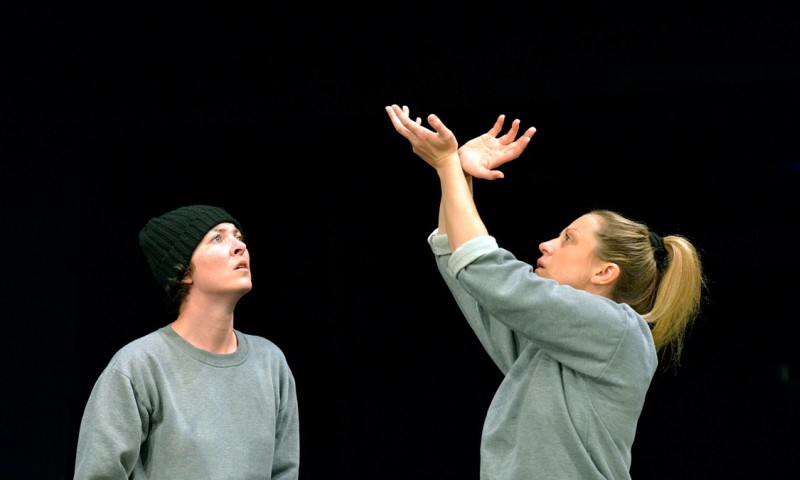 This deeply affecting ensemble production made me think about female prisoners in a significantly different light. After learning the characters’ stories, based as they are on real testimonies, I understood that the women’s eventual incarceration was as inevitable as it was beyond their control. Yet these women are very clearly presented not as victims but as survivors, well-rounded characters who have largely been treated appallingly by external, and often male, forces. Abusive fathers, violent husbands, and drug-pushing acquaintances all feature heavily in their fates. That they face these experiences with strength and in many cases good humour is testament to the ‘survival’ instinct inherent within them.
This deeply affecting ensemble production made me think about female prisoners in a significantly different light. After learning the characters’ stories, based as they are on real testimonies, I understood that the women’s eventual incarceration was as inevitable as it was beyond their control. Yet these women are very clearly presented not as victims but as survivors, well-rounded characters who have largely been treated appallingly by external, and often male, forces. Abusive fathers, violent husbands, and drug-pushing acquaintances all feature heavily in their fates. That they face these experiences with strength and in many cases good humour is testament to the ‘survival’ instinct inherent within them.
This is not to say that the characters are presented as blameless; indeed it is the very human and believable flaws in them that make them so engaging. Angie for example seems bent on self-destruction, with a passionate and all-consuming need for ‘gear’. Physicalized with stunning energy and raw edginess by Jessica Johnson, we see that the experiences that have shaped her have included sexual abuse and the death of her own baby at the tender age of just seventeen. In a heartrending monologue, she explains how heroin is the only thing that numbs her pain, flowing through her like ‘warm custard’ and giving her a sense of safety that she has never found elsewhere. For her, the future is uncertain.
We also see the stories of three other women, all imprisoned for varying lengths and varying reasons, and all equally absorbing. Effective theatrical devices help to flesh out these stories, including the imaginative use of masking tape to help give the audience a very specific idea of the design of the prison and particularly its limited cell space. The piece has been devised by women from HMP YOI Low Newton who have also brought the great level of detail and information that underpins the production throughout.
Under Laura Lindow’s precise and captivating direction, Catrina McHugh’s hard-hitting script highlights the shared experiences of these vulnerable women, often in highly amusing and unexpected ways. Key Change was commissioned by Dilly Arts, a North East England based arts development company who work with women in prison, with a clear aim to emphasise the need for ‘an alternative approach to female offending which prioritises the needs of vulnerable women’. With the shocking statistic that currently 40% of women will leave prison homeless, this need seems more pressing than ever, and is skilfully addressed in what is a vital and important production.
